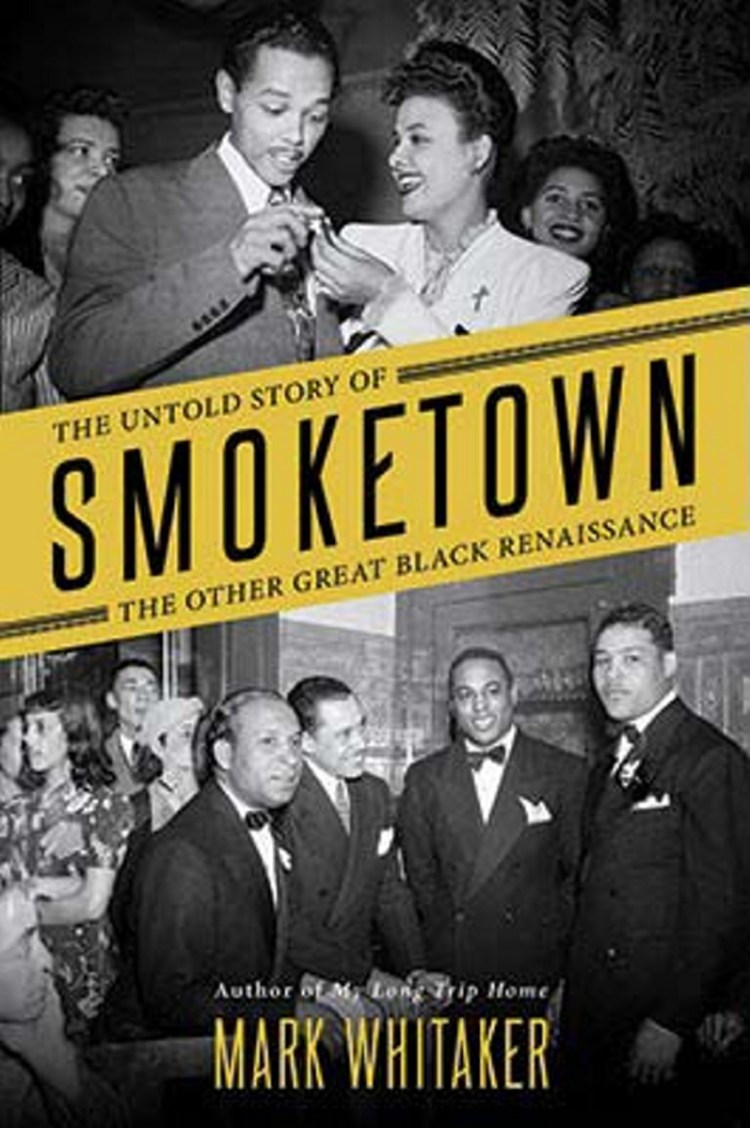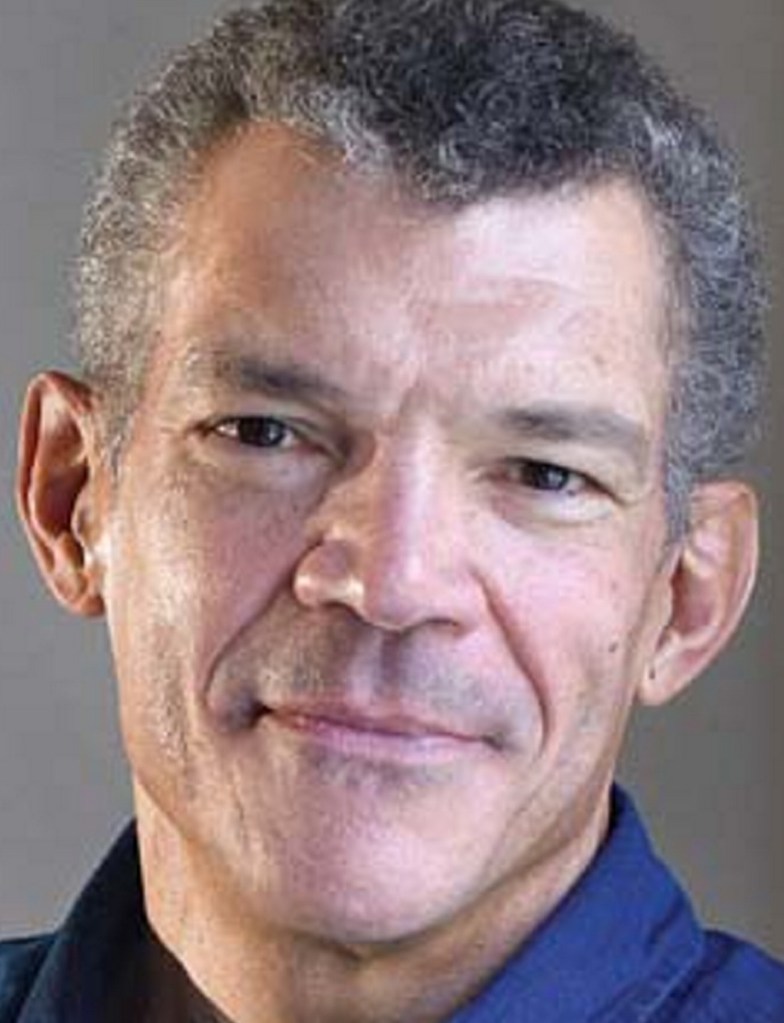Two things are worth mentioning about the subtitle of Mark Whitaker’s terrific, eminently readable “Smoketown: The Untold Story of the Other Great Black Renaissance.” The first is that it is slightly misleading. The story that has already been told, of course, is about the Harlem renaissance, the movement in literature, scholarship, visual art and music that was given its official inauguration in 1925 with Alain Locke’s anthology of African-American writing, “The New Negro.”
By contrast, the equally noteworthy developments spanning decades of the 20th century in Smoketown – which, in fact, was Pittsburgh – were never recognized collectively, even by those involved. That may be because, unlike those of the Harlem renaissance, the events Whitaker chronicles took place in seemingly unrelated fields, from music to journalism to sports to the illegal numbers racket.
The second thing worth mentioning is that the first doesn’t really matter. Some of the magic of “Smoketown” lies in the way it details how those fields often were connected, sometimes beneath the surface. Mainly, though, these colorful stories of great black accomplishments simply make for fascinating reading.
Pittsburgh is already known for a period in the late 19th century when giants walked the Earth – the banker Andrew Mellon, the steel magnate Andrew Carnegie, the electricity pioneer George Westinghouse, the food manufacturer Henry J. Heinz and the businessman Henry Clay Frick. (The nickname “Smoketown” was inspired by the great black clouds emanating from steel mill smokestacks.) Whitaker ably demonstrates how the descendants and legacies of those white men directly affected Pittsburgh’s black community, in ways both positive and devastating.
That black community had its origins in the 19th century as well. Pittsburgh was a destination during the Great Migration of African-Americans from the South; during that mass movement, and even earlier, the city offered unusual educational opportunities for blacks, thanks in part to integrated public high schools and university scholarships sponsored by abolitionists. Pittsburgh’s black community was smaller than those of such black meccas as New York and Chicago, but what it lacked in size it made up in industry. Under the leadership of its first, long-reigning editor, Robert Lee Vann, the Pittsburgh Courier – begun in the first decade of the 20th century – was for many years a leading black newspaper and a voice heard throughout the land. The paper served as a strong, influential advocate for integration in sports and the military; as a force contributing to another black mass migration, this time from the Republican Party of Abraham Lincoln to the Democratic Party of Franklin D. Roosevelt; and as a maker of reputations, including those of the sports legends Joe Louis and Jackie Robinson. It was in the area of sports that the Courier intersected with Pittsburgh’s underworld, whose most colorful figures were among the owners of the city’s history-making black baseball teams, the Homestead Grays and the Pittsburgh Crawfords. The Courier covered those teams extensively, focusing particularly on star players such as Satchel Paige and Josh Gibson.
Then there was music. Pittsburgh seemed to produce jazz stars as reliably as it did steel, giving the world such luminaries as Lena Horne; the pianist Erroll Garner; the bassist Ray Brown; the matinee-handsome singer and bandleader Billy Eckstine; and the composer, lyricist and longtime Duke Ellington songwriter Billy Strayhorn. Ellington discovered Strayhorn in Pittsburgh and told him to come to New York; Strayhorn turned his new boss’s directions for reaching Harlem by subway into one of America’s most famous songs.
And then came the end. With African-Americans entering Major League Baseball, the black teams faded; the integration that the Courier had long championed ironically helped bring on the newspaper’s decline, as its best writers were hired away; and Mellon’s nephew Richard King “R.K.” Mellon helped spearhead the urban renewal that displaced so many African-Americans beginning in the 1950s. One mixed-race man, born Freddy Kittel Jr. in 1945, would become the bard of those hard-luck blacks after choosing a nom de plume, one that combined his middle name and his mother’s maiden name. As the celebrated playwright August Wilson, he credited the libraries that bore Andrew Carnegie’s name with exposing him to literature. (Given Wilson’s prominence in “Smoketown,” the omission of another important black Pittsburgh writer born in the 1940s – John Edgar Wideman, whose books are set mostly in the city’s Homewood section – is puzzling.)
Whitaker’s writing is compelling without calling attention to itself; it is like a glass case, putting the focus squarely on the contents. For all the black accomplishments detailed in the book, “Smoketown” is a reminder, in these racially troubled times, of how things really were worse once, of how openly and unapologetically – and routinely – Americans once practiced the absurdity that is racism. Wilson’s mother, who won a radio contest for which the prize was a new washing machine, received a certificate for a used machine once the company realized she was black, a prize she turned down with a line her son always remembered: “Something is not always better than nothing.”
What Whitaker calls the “slow leak” that deflated the career of Eckstine – who had been shaping up as a rival to Frank Sinatra – was a Life magazine photo of a white fan leaning against his chest and laughing as Eckstine smiled down at her. The outspoken, no-nonsense, impossibly cool Eckstine emerges as one of the most compelling figures in “Smoketown.” In one movie-worthy scene, he went to see a record producer who owed him money. When the producer took out a pistol instead, Eckstine calmly hand-rolled a cigarette – which was cut in half by the producer’s bullet. After Eckstine simply began rolling another, the producer was so impressed that he called to his secretary, “Get my checkbook!”
“Smoketown” will appeal to anybody interested in black history and anybody who loves a good story. In short, anybody.
Send questions/comments to the editors.




Success. Please wait for the page to reload. If the page does not reload within 5 seconds, please refresh the page.
Enter your email and password to access comments.
Hi, to comment on stories you must . This profile is in addition to your subscription and website login.
Already have a commenting profile? .
Invalid username/password.
Please check your email to confirm and complete your registration.
Only subscribers are eligible to post comments. Please subscribe or login first for digital access. Here’s why.
Use the form below to reset your password. When you've submitted your account email, we will send an email with a reset code.